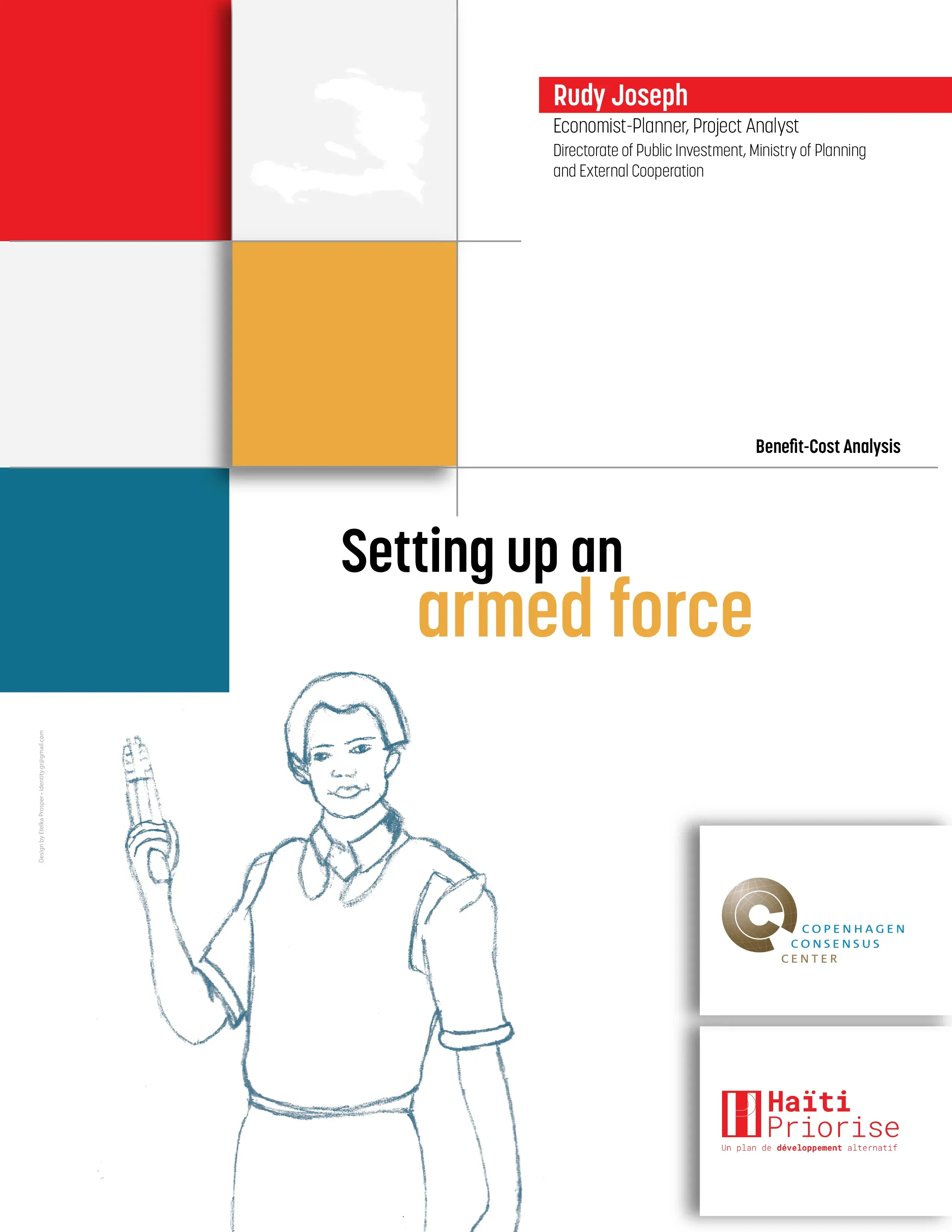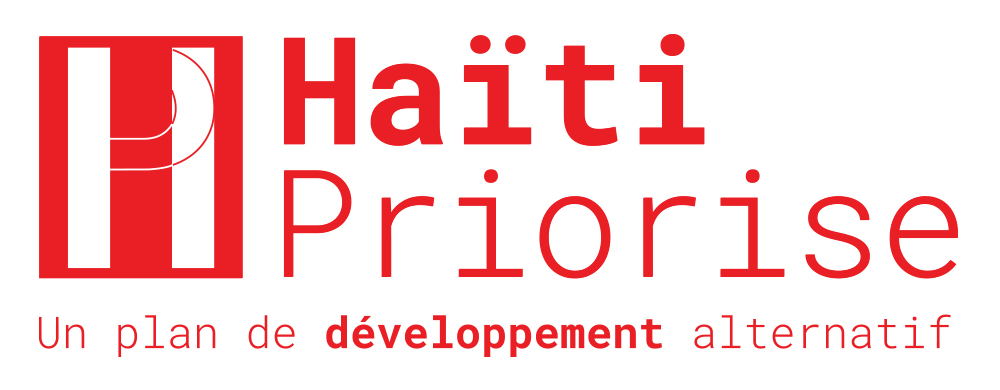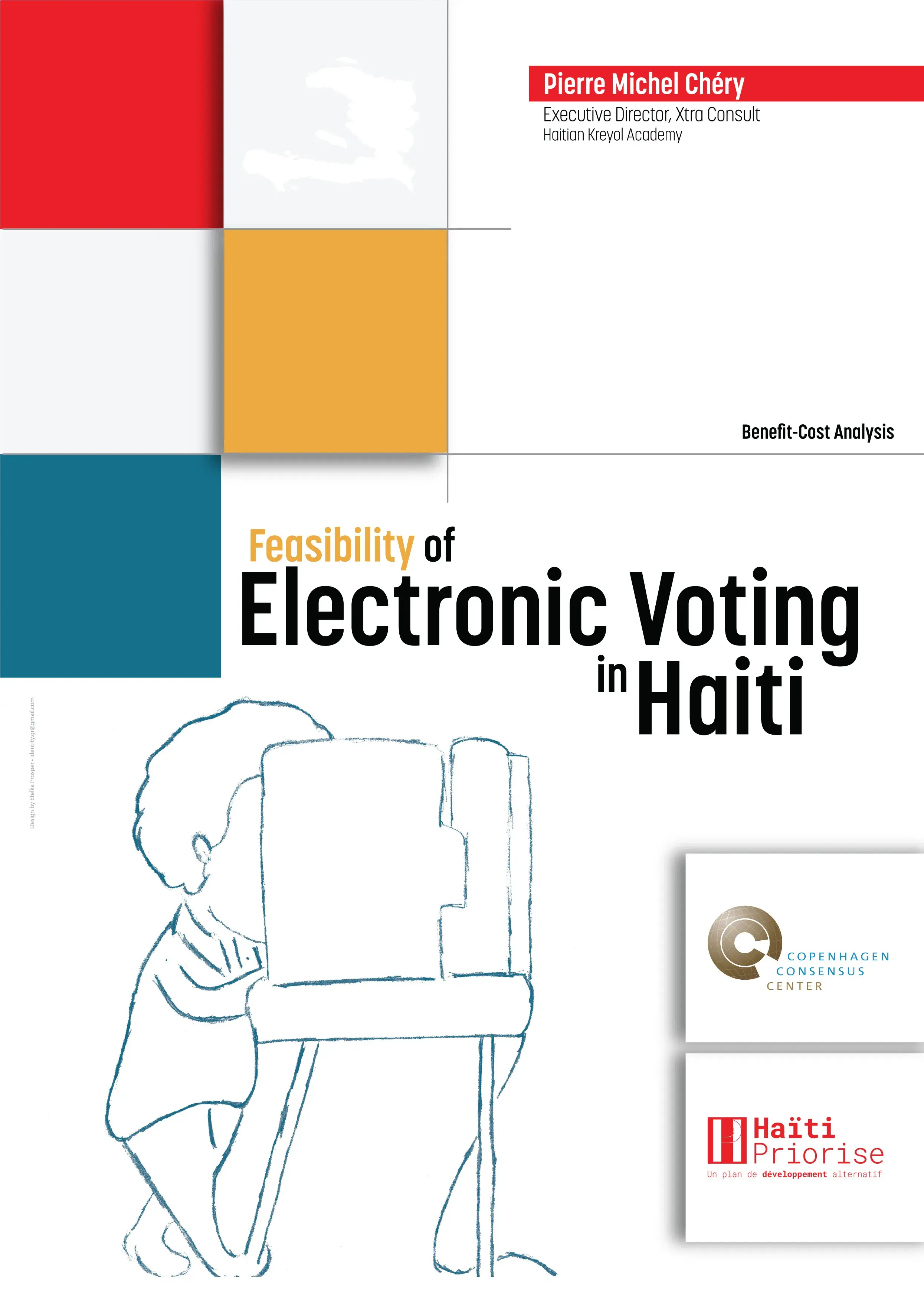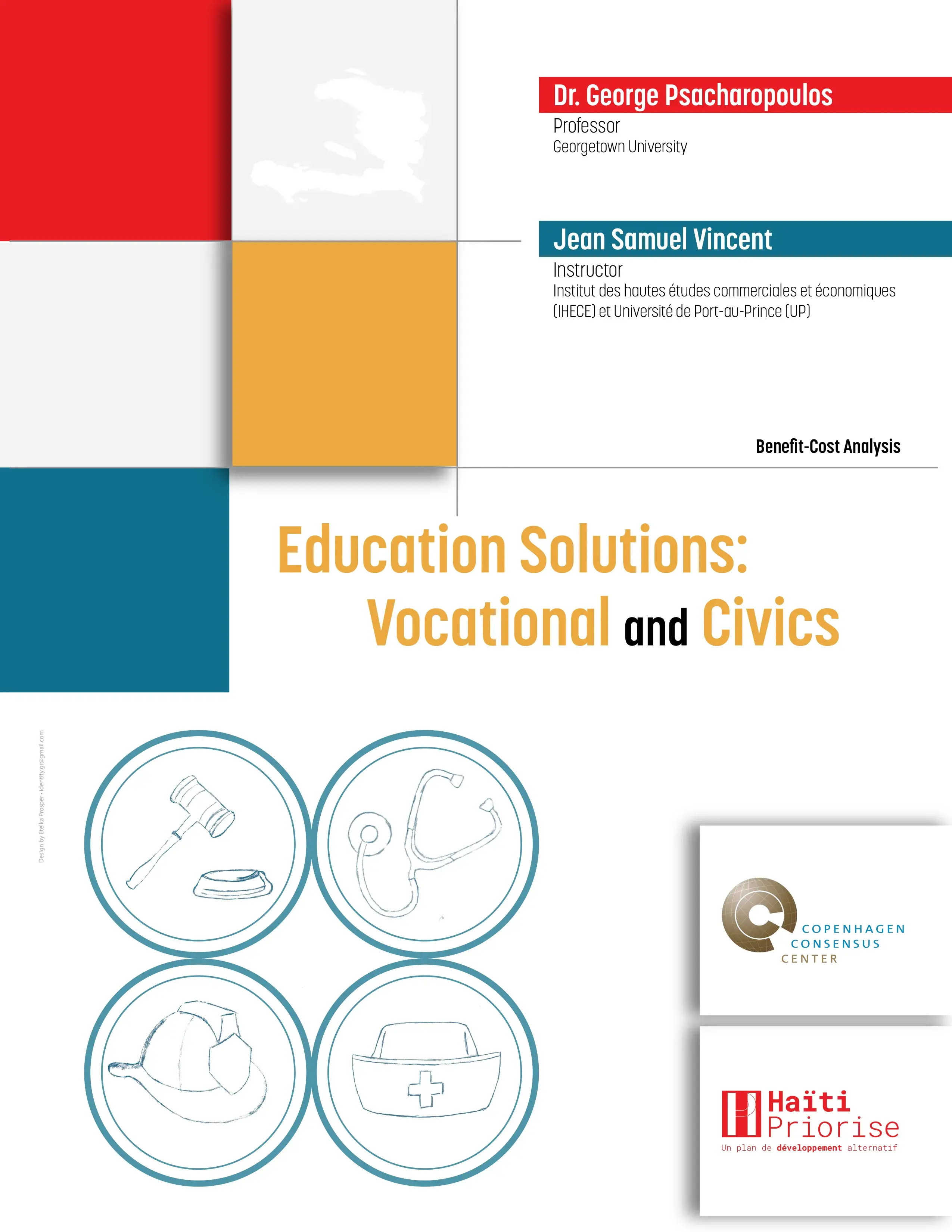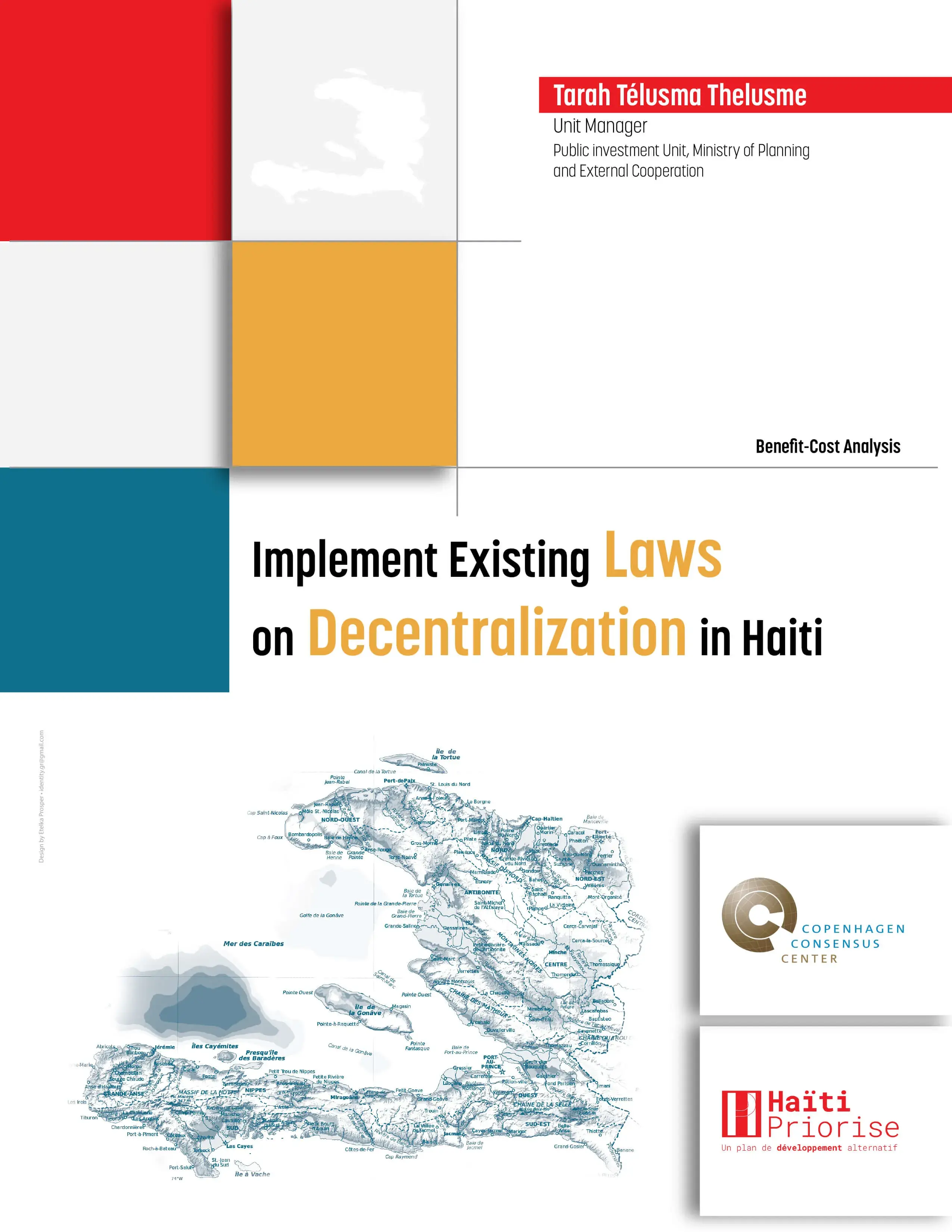Democracy and Governance
There are various initiatives that could be undertaken to try to strengthen Haiti’s democracy and governance.
One approach would be to enhance the decentralization of powers from the central government. To strengthen the public service sector, salaries could be increased, or a performance payment program introduced. Focusing on e-government initiatives could involve creating an electronic registry of births, or digitizing other government services as explored in broadband research.
Elections are currently very expensive. Money and time could be saved by creating an e-voting system – which also has the possibility of improving participation rates. Haiti’s military was disbanded in 1995. Creating a Haitian Armed Forces could improve the response to natural disasters. And teaching civics and skills to children would mean educating the next generation on democracy, how government works and other functions of the state.
Continue to check back for future research releases related to Democracy and Governance.
Cost Benefit Analysis of Modernizing Civil Registries in Haiti - Using technology to register births
Written by Moïse Celicourt, Economics Professor at the University Notre Dame of Haiti (UNDH), this paper focuses on digitization of birth registration. Nearly 30% of children aged under four do not have a certificate of birth registration. This deprives children of fundamental rights and risks condemning them to exclusion.
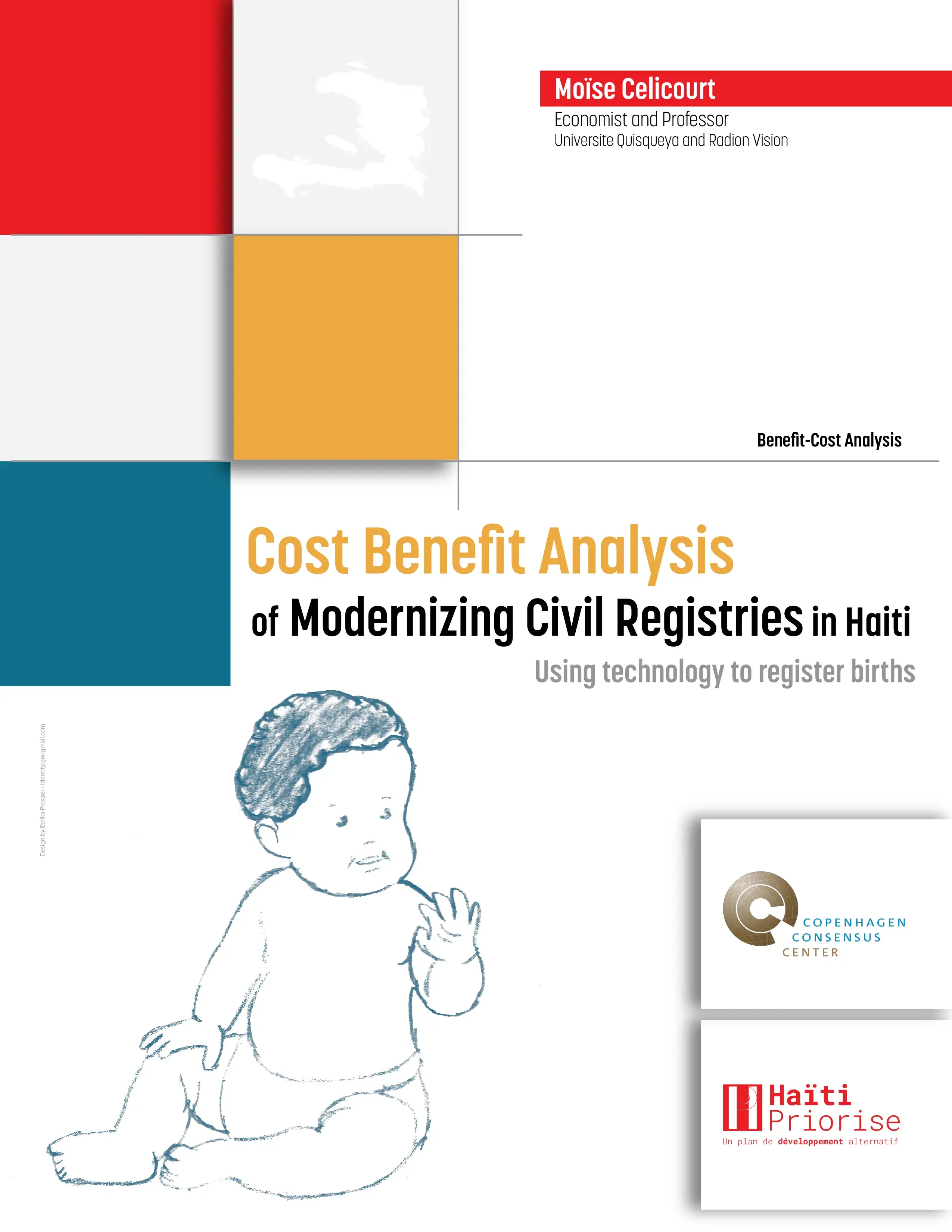
Benefits of Government Digitization and Improved Mobile Access in Haiti
Written by Dr. Pantelis Koutroumpis, Research Fellow at Imperial College Business School, this paper says what Haiti really needs is a holistic National Broadband Plan with targets for coverage, capacity, and competition. In its absence, Dr. Koutroumpis proposes improving the infrastructure that powers Haiti’s Internet, along with the government’s processes.
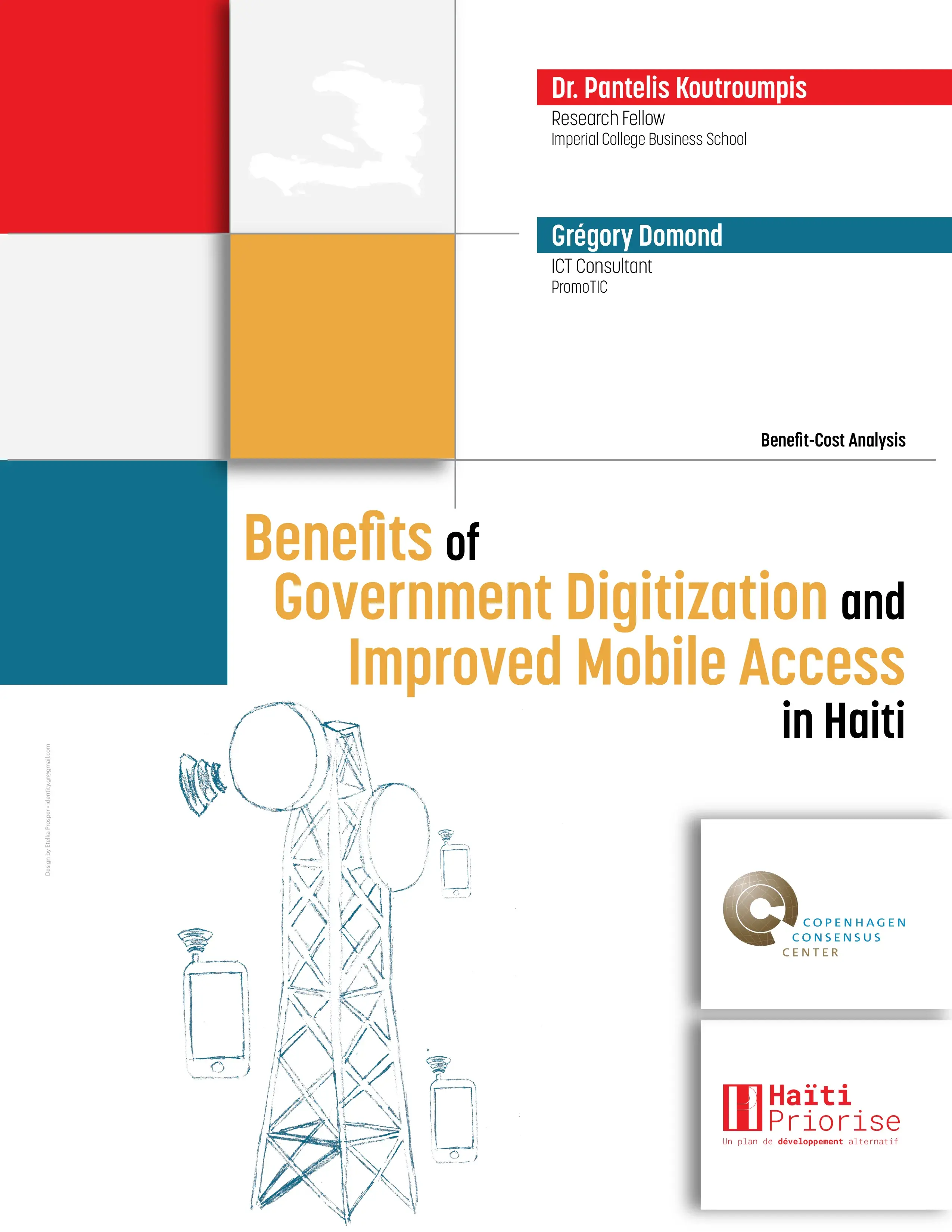
Cost benefit analysis of a wage increase and the introduction of a performance-based payroll program in the public service
Economist Riphard Serent from Quisqueya University and Center for International and Diplomatic Studies focuses on ways to raise public sector performance by paying public servants more across-the-board, or introducing performance-based pay.
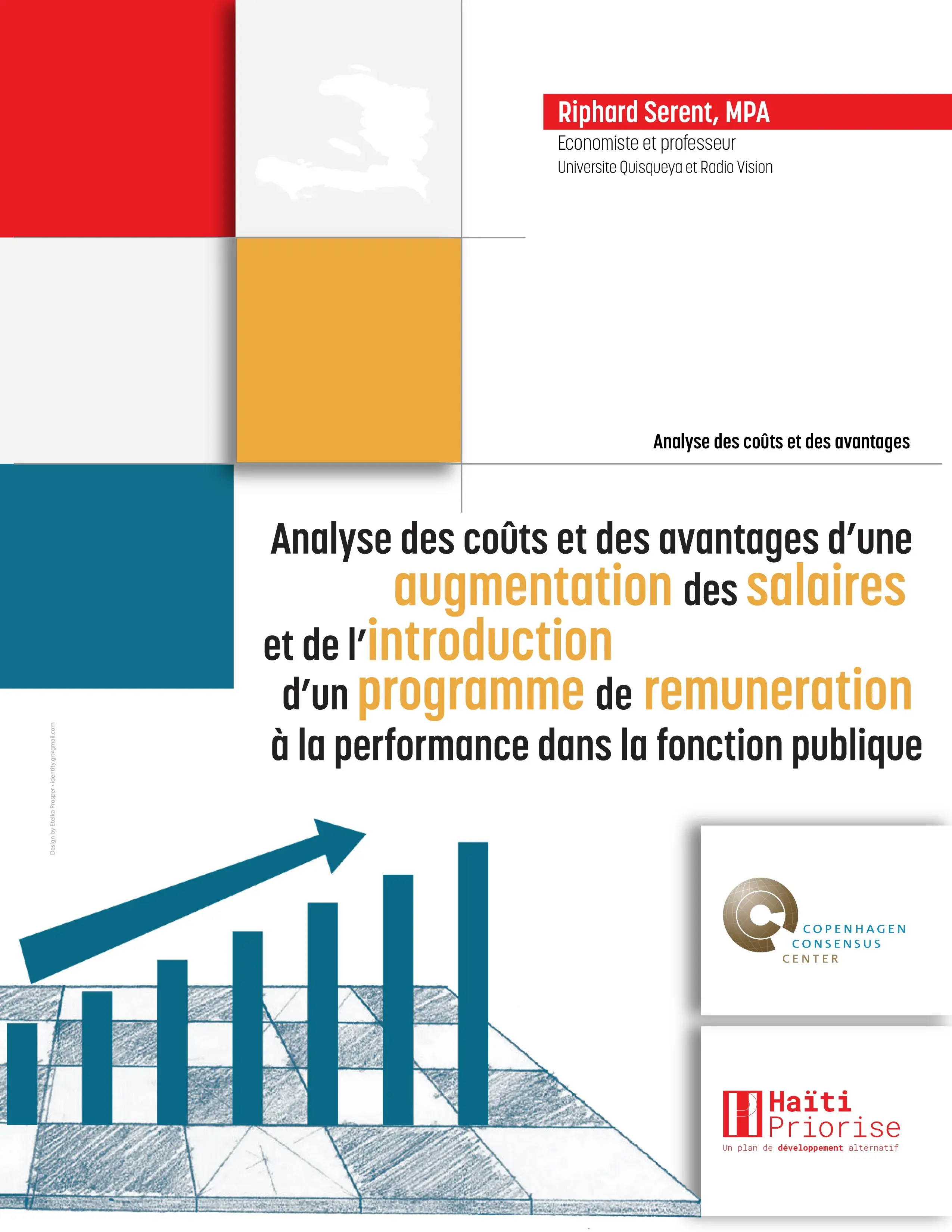
Setting up an armed force
Economist-Planner and Project Analyst Rudy Joseph at the Ministry of Planning and External Cooperation has conducted a benefit-cost analysis of the re-introduction of a patrol force. This force will be given the mission of defending the territory, protecting sensitive environmental areas, and responding to natural disasters.
